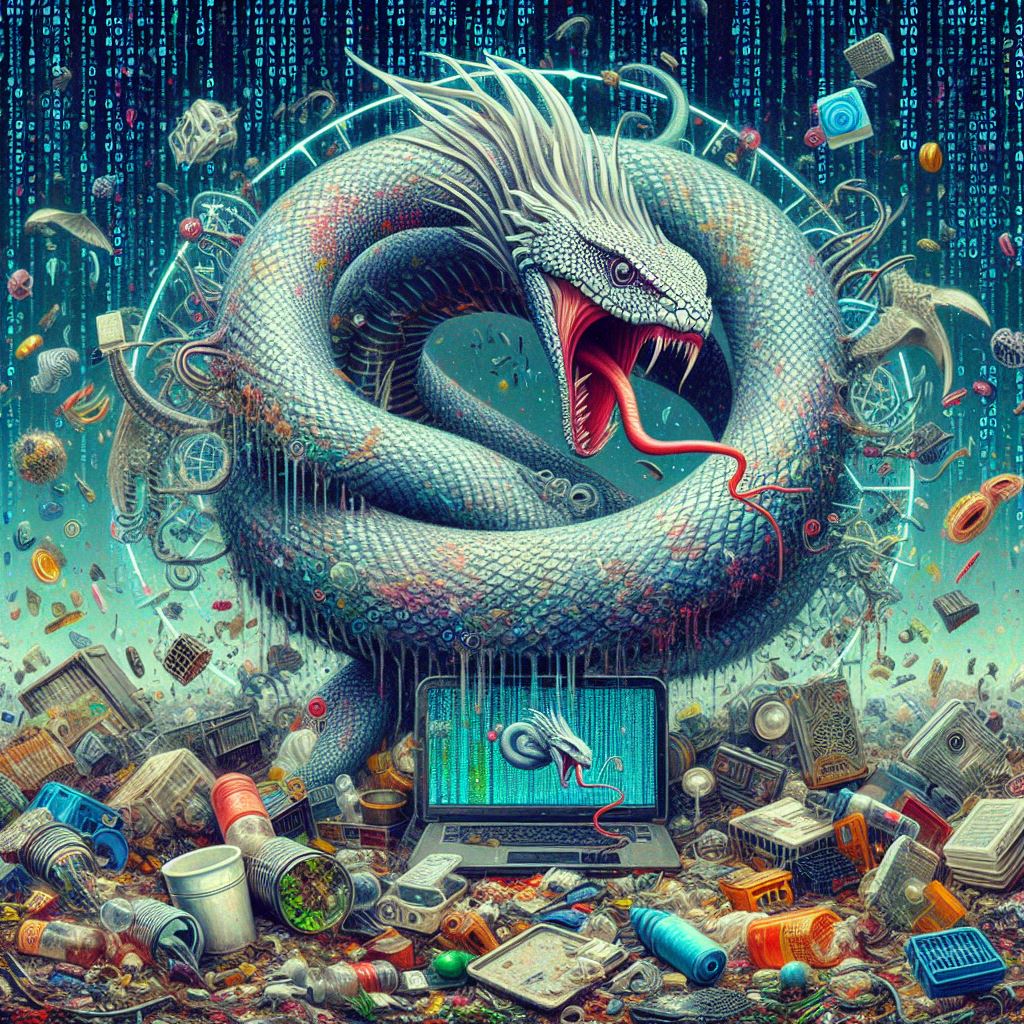Institutions inflict violence on reality. Institutions commit violence on reality (we might say) because they ignore the subtlety of reality completely – they act as if reality were not ‘what it is’ at all, but something else – something terribly crass and banal. Institutions have no regard for the subtler aspect of reality just as the everyday mind has no regard for those aspects of the world that do not correspond to its assumptions, and it is quite impossible to (sensibly) argue otherwise! But the pertinent point here is that no one does argue otherwise – we don’t bother ‘arguing otherwise’ because we simply don’t imagine that there is a subtler aspect of reality. If we don’t acknowledge that there are any subtle aspects of reality to deny or commit violence on then the argument is never going to arise. The argument is never going to be raised; the argument is never going to see the light of day…
We almost always go along with the institution; we almost always go along with the everyday mind. What’s to stop us, after all? We don’t recognise that there is anything else other than what the institution says there is, other than what the thinking mind authoritatively informs us that there is. We are provided with the game and we play it and it is extraordinarily unlikely that we will do otherwise. It is extraordinarily unlikely that we will see that the game is just a game and wonder therefore what lies behind it. The whole function of the game is after all that it should divert us from wondering what lies behind it; the whole function of the game is that it should fully engage our attention upon its constructs so that we will never get the opportunity to see that the it is only a game. The whole point of the game as it is that it should act as if it were the whole world and if we take it – as we do take it – to be ‘the whole world’ then why should we ever look for anything else? Why should we ever wonder what lies behind the presented reality or what it is ‘covering up’? Out of all the people we know or are acquainted with, all the people that we might encounter or communicate with in the course of the day, who amongst them does not take the ‘presented world’ (the world that is being continually and uncompromisingly presented to us by the institution of society and the institution of the everyday mind) at face value? When does this ever happen?
To question the game that we are all plan to question ourselves because we ourselves are a construct of that game. James Carse says that the finite game which is society protects itself by bestowing titles and honours and material advantages upon those who uphold its values valiantly enough. When we have been provided with an honoured position within society, with wealth and status, we are automatically recruited into protecting society because it is society that is providing us with these benefits that we are enjoying. Any enemy of society automatically becomes our enemy therefore and we will feel the greatest possible enmity towards them. We will act so as to silence them with the power that has been given to us. We will denounce them, we will mobilise the rest of society against them; so it was that Timothy Leary was labelled ‘the most dangerous man in America’ by Richard Nixon! Saying things like “Think for yourself and question authority” didn’t exactly endear him to the administration, any more his famous motto ‘drop out, turn on and tune in’ did. A similar process to the one described by James Carse occurs in the ‘institution of the thinking mind’ – this venerable institution also provides us with status and honours, self-created created though they might be. As is well known, the TM facilitates us in believing that we are important and great and special, etc, without us ever having to make any effort at all! These honours are given to us automatically and although they are quite vacuous (the glory of the ego being notoriously vacuous!) it is more than enough to assure our allegiance and obedience to the thinking mind. If we demoted the TM then we would straightaway lose our fine opinion of ourselves after all!
If the institution of thought were to lose its credibility then not only do we lose our fine opinion of ourselves (if we happen to have to have one) we will lose any and all opinions of ourselves and if we lose all opinions of ourselves – good or bad – we lose our concrete identity. The ultimate ‘benefit’ that the TM provides us with is the ‘benefit’ of the concrete identity and we will work very hard indeed keep this particular benefit! To lose it is our greatest fear even though the possession of it doesn’t actually bring us any great joy – or even any joy at all when it comes down to it! The ‘benefit’ that the concrete identity brings us the benefit of the game, the benefit of the institutionalised way of being, which this is the benefit of having all the options mapped out for us at every stage of our lives. The benefit of the game is that we don’t have to take the responsibility for working we will do in life, you just have to get on with doing what we have been told to do, or what someone else (i.e. the ‘collective’) has decided upon and this is society in a nutshell. The benefit bestowed upon us by the thinking mind is that our existence is reduced to the very basic and very simple precedent of always (under all circumstances) acting so as to secure our own advantage, or what we see as our ‘advantage’. The (admittedly unpalatable truth) about the concrete identity (or ego) is that it can’t act in any other way other than ‘the way of always trying to seek its own advantage’ and so this – by any reckoning – represents a massive oversimplifying (or downgrading) of the central existential question of ‘What’s it all about?’ For the ubiquitous everyday ego the answer to this question is absurdly simple – so simple that it doesn’t even have to think about it. The answer is ‘It’s all about me’!
Playing the game provides us with what we automatically relate to as ‘a very great benefit’ therefore and yet at the same time – as we started at out by saying – the institution which is ‘the game’ inflicts very great violence on us. As we said earlier, the institution ‘inflicts violence on reality’ – so to speak – by implicitly saying that reality ‘is what it isn’t’. The institution (any institution) denies the subtler aspect of what’s going on in life and, as a result, it leaves us with nothing but a dry husk or shell. It leaves us with a crass, generic version of life and because we don’t have anything else to go on we never question the validity of this version. We never question what we have been presented with. If this isn’t ‘doing violence to reality,’ then what is? The institution – any institution – always commits violence on the subtler nature of who we really are. It can’t not do this because it has no capacity to recognise anything that lies outside the remit of its own inbuilt assumptions, its own rules; the institution (like any machine) has no capacity to recognise anything that does not match up to its own expectations. How can a machine recognise something that doesn’t ‘match up with its expectations’? It has a ‘spec’ and it faithfully lives up to its spec, come what may. Machines are of course purely literal; a machine will continue doing, or trying to do, the job that it has been designed to do, in a very literal fashion, right up to its dying breath, so to speak.
When we create the game for ourselves we necessarily become slaves to it; we become slaves to it because that’s how games work – a game can only work as a game when we don’t know it to be a game. A positive model or picture of reality can only work in a ‘positive way’ when we don’t see it as being positive (i.e. intentional or ‘designed’). Suppose I am living my life on the basis of a model that I myself have made up and I can plainly see that it was myself who has ‘made it up’ – what would that feel like? Suppose I have a very strong belief and I can clearly see that it is purely and simply ‘a belief’ (i.e. I can see that I have chosen to believe in it) then where does this leave me? And if I have a very strong sense of myself as this ‘concrete or limited identity’ and I can also see perfectly well that I myself chose to see things this way, that I have chosen to only utilize this narrow point of view (when there is absolutely no necessity to do this at all) then what does this do to my precious sense of identity? This insight would of course fatally puncture the celebrated illusion of the positive self, and since I am utterly convinced that I am this ‘positive self’ the prospect of having my cosy illusion of self who I am ‘fatally punctured’ isn’t really something that I am going to want for myself! This is actually the eventuality (out of all other possible eventualities) that I am most averse to – as we have said earlier – and so this little thing we call ‘insight’ becomes a very deadly enemy. No enemy deadlier, in fact!
So when we create the game we necessarily become slaves to it and the singularly pertinent fact about games that they are ‘rule-based’, that they are essentially ‘machine-like’. That’s the definition of a game – that it is a domain of activities that takes place in relation to a specific set of rules. What we have done (what we have had to do in order to obtain the benefit that we want) is to put ourselves under the power of the machine and this automatically turns the machine from being ‘benign’ to ‘malign’. A machine is benign when it faithfully performs the tasks that we require it to perform, and it becomes malign when it is given the task of defining a reality for us. The machine generates its own ‘version’ of life and this version is necessarily crude and limited, as we have been saying. The machine also provides us with its own version of ‘who we are’ and it does this – in the only way that it can – by inflicting violence on our true nature.
When we become aware of the designed nature of our so-called ‘world’ then this is when we become aware that the activity of our fellow man is ‘endless folly’ as Carlos Castaneda puts it. Everywhere we look there is nothing but folly, Castaneda says:
Once a man learns to see, he finds himself alone in the world with nothing but folly…
When we become aware that the game is only again then we become aware of the nullity and who wants to become aware of the nullity? Where’s the profit in this? And yet not to become aware of the nullity as ‘the nullity’ is to become its slave, and to be slave to the nullity (or to ‘a slave to the game’) is to collude with it to inflict unending violence on ourselves.
Art: A Great Day For Freedom, by ahermin on deviantart.com






